The Alien franchise has been terrifying audiences since 1979. But what if we told you the scariest thing in Noah Hawley’s Alien: Earth was not the Xenomorph, but a sheep with the creepiest stare you’ve ever seen? Somehow, after so many decades, and both bad and good versions of the Alien universe, Alien: Earth manages to not only “give the fans what they want,” but also add entirely new parameters to the mythology that Ridley Scott invented years ago. And don’t worry, we’ll circle back to that sheep. Trust us, it’s nightmare fuel. But just to get the big question out of the way, yes, Alien: Earth is good. In fact, it’s frequently great.
A tantalizing possibility that fans have had ever since at least Aliens is “What would happen if the Xenomorph landed on Earth?” David Fincher’s Alien 3 was originally going to tackle this premise, and the original teaser even promised that storyline. Then, Fox decided to keep things in space, for reasons. But showrunner Noah Hawley plays with our expectations about that idea in this series. He not only shows us what would happen in this “aliens in our backyard” scenario, but he also reveals that it all happened years before the Nostromo crew went to LV-426.
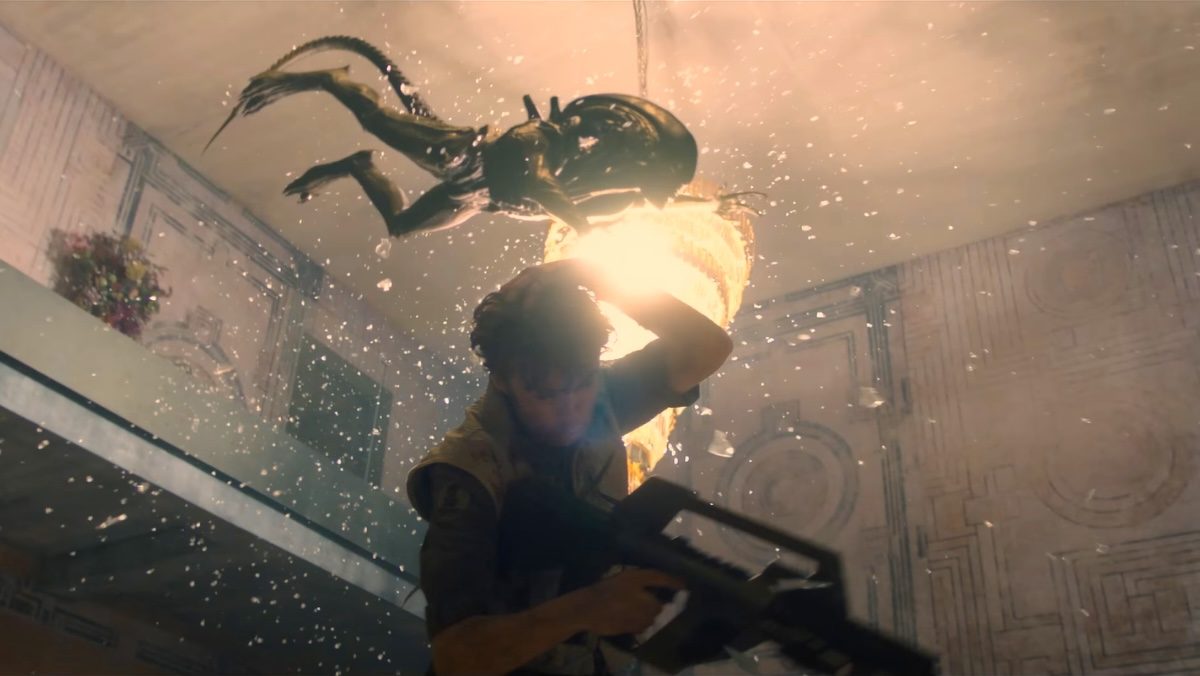
The first episode opens with a familiar scenario. We witness a research ship in deep space carrying unknown alien organisms suddenly having an outbreak, with the aliens killing most of the crew. But instead of exploding in space, this ship, the Maginot, crash-lands on Earth. The ship and its cargo are the property of the company Weyland-Yutani. Yet because it crashes in a country owned by a different corporation, Prodigy, they feel they have a claim to whatever is in that ship. Much of the action and horror beats come from this aspect of the series. The action in these sequences is top-notch. Every penny spent on this show is seen on screen.
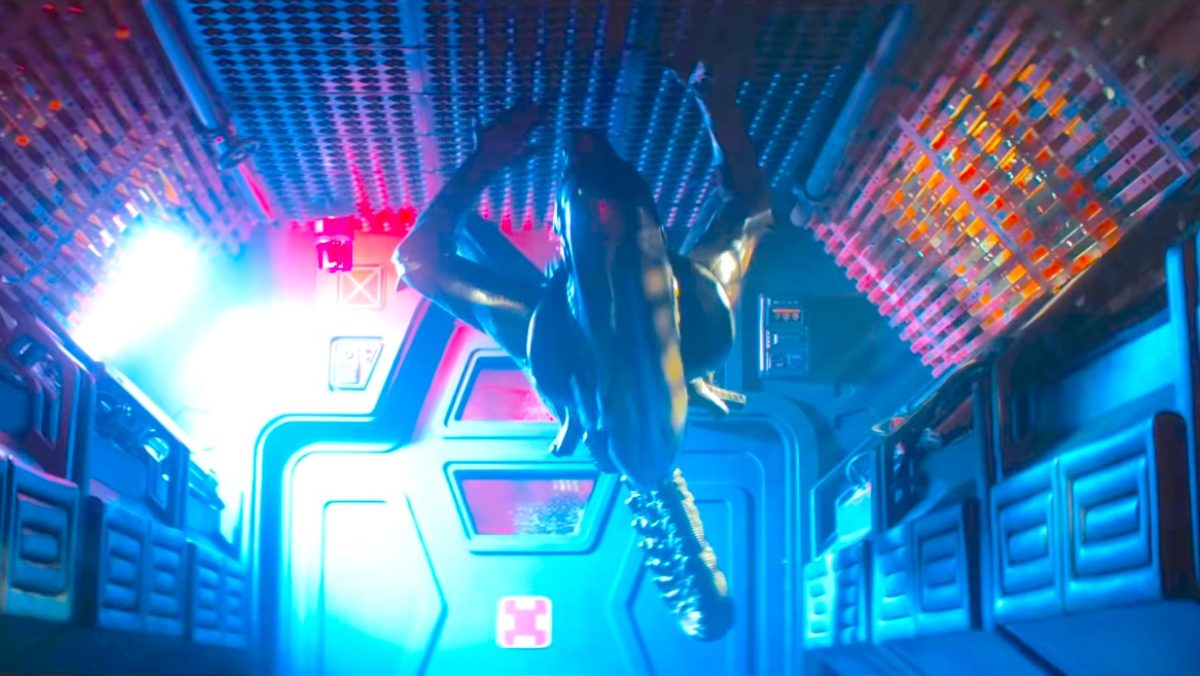
We’ve always known that the true villain of the Alien franchise isn’t the interstellar beastie, it’s the nefarious corporation Weyland-Yutani. They’ve been after the creatures for their weapons division since Alien, willing to sacrifice innocents for the sake of profit. So it makes sense that in Alien: Earth, Weyland-Yutani is the “Big Bad.” But what’s refreshing is that they’re not the only Big Bad, or even the main one. That honor goes to Prodigy, a rival of Weyland-Yutani run by trillionaire genius Boy Cavalier, played with irritating verve by Samuel Blenkin. We say this with love and respect, but he has the most smug, punchable face we’ve seen on screen in years.
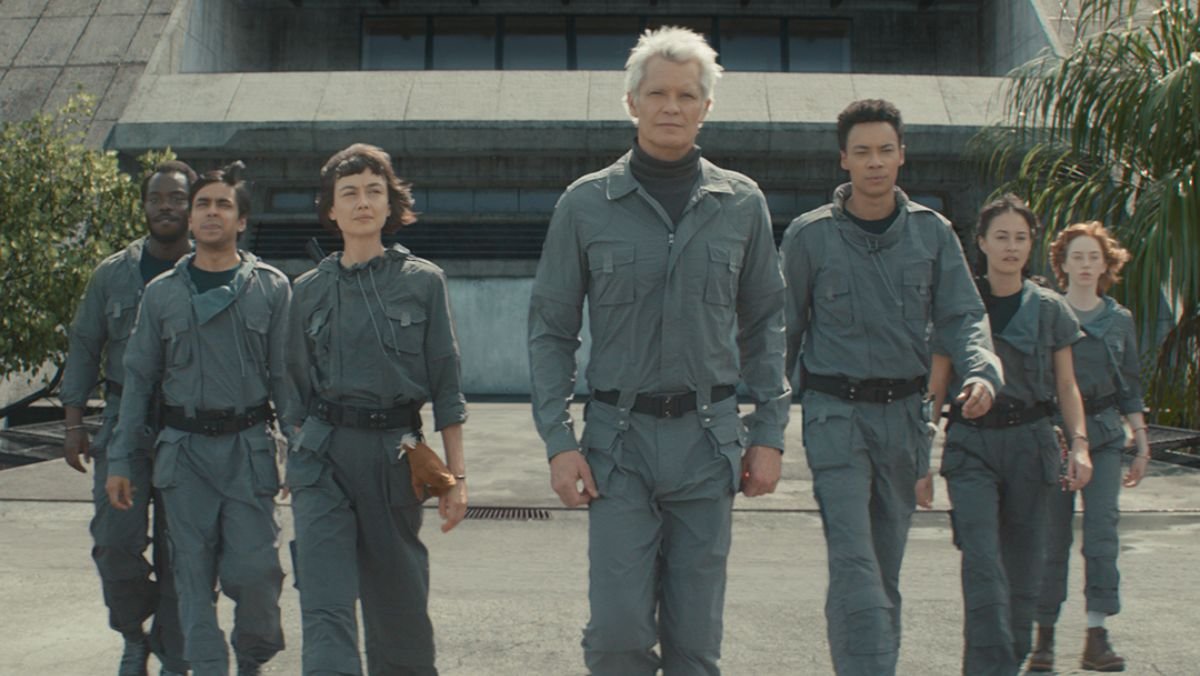
The highlight of the series, and its emotional core, is the six hybrids. They are led by arguably the series’ main character, Wendy, played with quiet strength and innocence by Sydney Chandler. Strong women are a core component of this franchise since Sigourney Weaver’s Ripley. And although Chandler’s character is very different, it’s nice that the tradition of complex female leads continues on. Chandler’s hair and makeup make her look like she stepped out of a lost Jean-Pierre Jeunet film. And this might be an Easter egg, since he directed Alien: Resurrection in 1997.
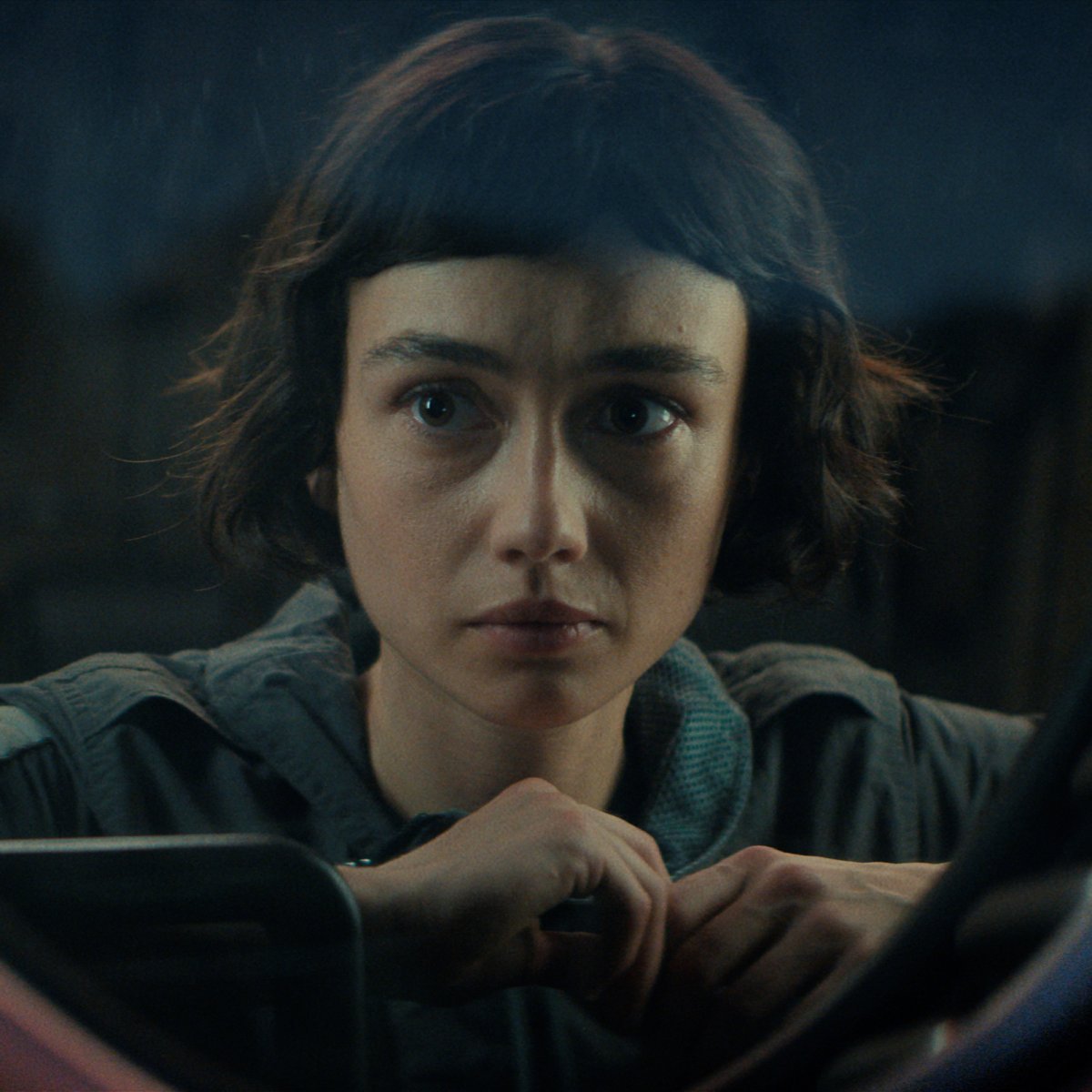
We’ve known that synthetic beings exist in this universe since Ash and Bishop from Aliens, of course. But now we learn that cyborgs are also common. New synthetic beings also immerge in the early 22nd century, human consciousness downloaded into synthetic bodies. These hybrids are the brainchild of Cavalier, as he hopes to push transhumanistic tech into actual immortality. His prototype hybrids all come from the consciousnesses of dying children, whose parents volunteered them for this experimental new tech, in a last-ditch effort to save them.
These children are easily the best parts of the show. All six of them play the parts of kids in adult bodies to perfection. Particularly, Jonathan Ajayi as Smee, Lily Newmark as Nibs, and Adarsh Gourav as Slightly. You probably never thought you’d get Big and Shazam vibes in an Alien entry, but you do here. They give this otherwise heavy series a much-needed touch of levity at times. Timothy Olyphant also shines as the no-nonsense synth named Kirsh. So does Babou Ceesay as the relentlessly driven cyborg Morrow, Weyland-Yutani’s company man. The entire supporting cast is excellent.
But the emotional core of the show is really between Wendy and her brother from her former human life, Joe, a military medic played by Andor’s Alex Lawther. In many ways, he’s our POV character, an ordinary guy thrust into a world of trillionaires, machine people, and monsters from space. Lawther gives Joe such a sympathetic and likable energy, you can’t help but be on edge every time his life is in danger. Which, on this show, is quite a bit. If I have a complaint, it’s the number of times Joe almost dies but is saved in the first two episodes alone. It borders on the comedic at times. Of course, beyond that, we can’t tell you his ultimate fate.
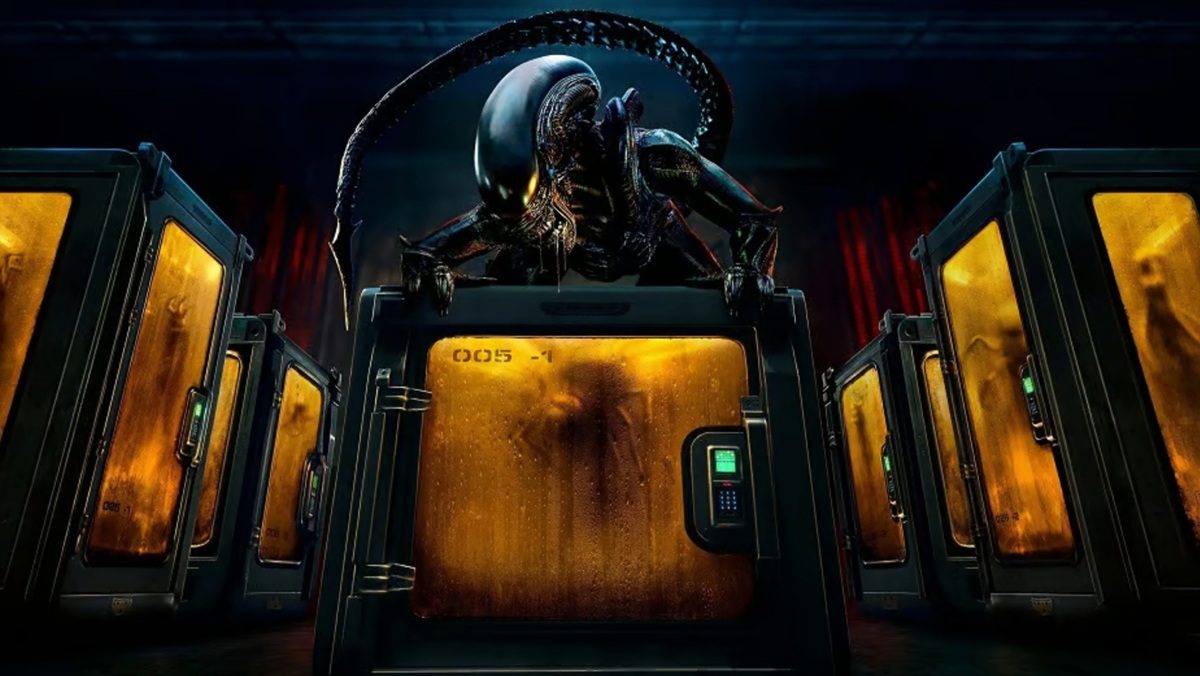
But of course, you want to know about the titular aliens. The Xeno plays a big part in this show, and it’s just as terrifying as always. But there are four other parasitic alien species in this show. And if we’re being honest, they might steal the show when it comes to ick factor. Especially one we call the eyeball octopus. This species is exactly what it sounds like. It’s a slimy eyeball moving around on octopus legs, ripping the real eye out of an organism, nestling into the socket, and taking control. It’s as gross as it sounds. When it does so to a poor little lamb, it becomes the most terrifying livestock since Black Phillip from The Witch. But the plant and bug-like aliens will make your skin crawl, too, don’t worry. One of the smartest things Hawley does is expand the roster of aliens here.
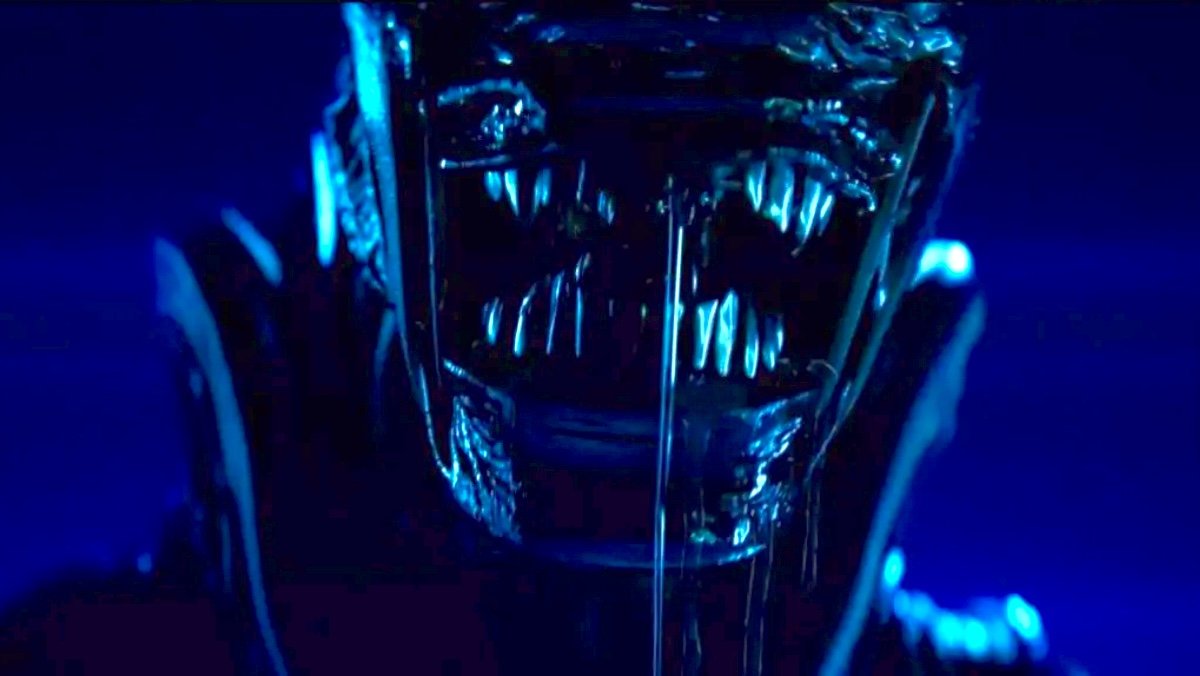
In many ways, Alien: Earth is a testament to the creative geniuses who worked on Ridley Scott’s original Alien. Not just Scott and H.R. Giger, but production designer Andy Nicholson lovingly recreates the look and feel of the world created by Ron Cobb and Chris Foss back in 1979. Much like Andor reminded us that Star Wars’ original production designs by Ralph McQuarrie were peak back in 1977, Alien: Earth reminds us that the original aesthetic of Alien still works perfectly decades later. If it ain’t broke, etc.
Noah Hawley is juggling a lot of things in this eight-episode first season. He’s making a sci-fi horror show, and a Blade Runner-esque look into artificial life and what it means in an existential sense. Not to mention, a scathing criticism of soulless corporations that seek to rule the world. In the case of Alien: Earth, we learn that the corporations have replaced all governments on the planet. Probably the one part of this show certain to come true, sadly. Yet Hawley, along with his talented crew of writers, directors, and actors, has managed the impossible. He’s made an Alien prequel that has us fully invested and wanting more. Hopefully, more comes in the form of a second season, sooner rather than later.
Alien: Earth drops on FX and FX on Hulu on August 12.
Content shared from nerdist.com.
